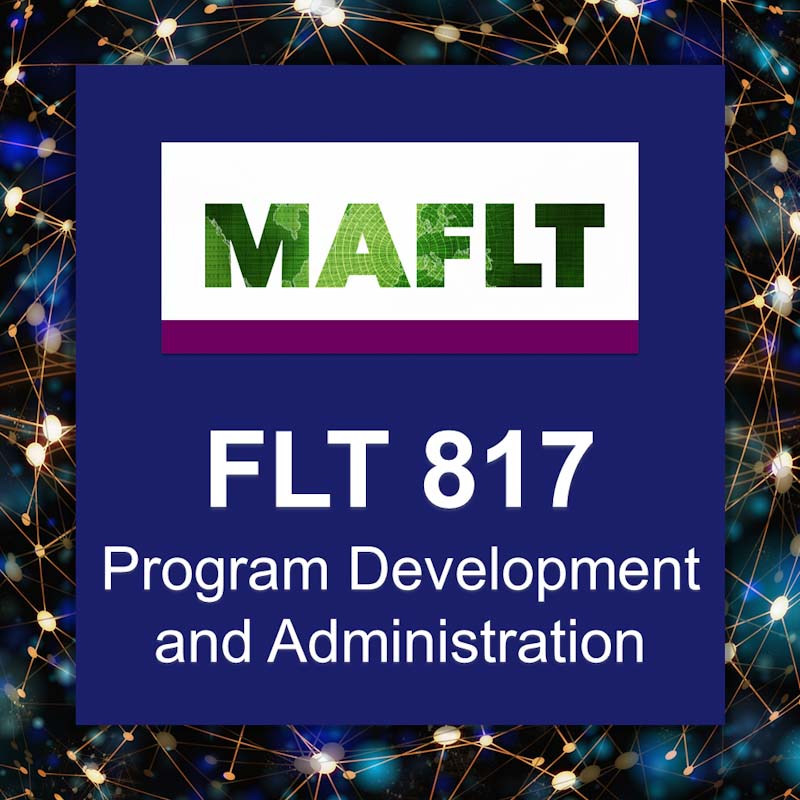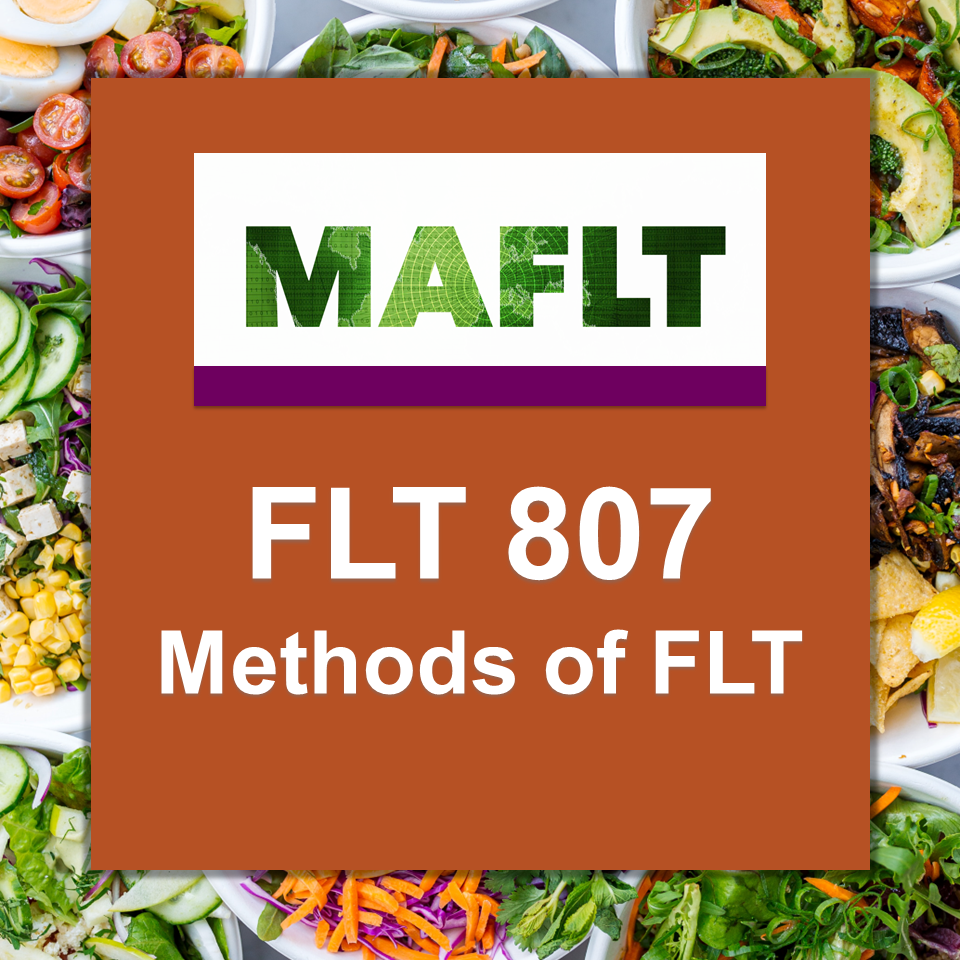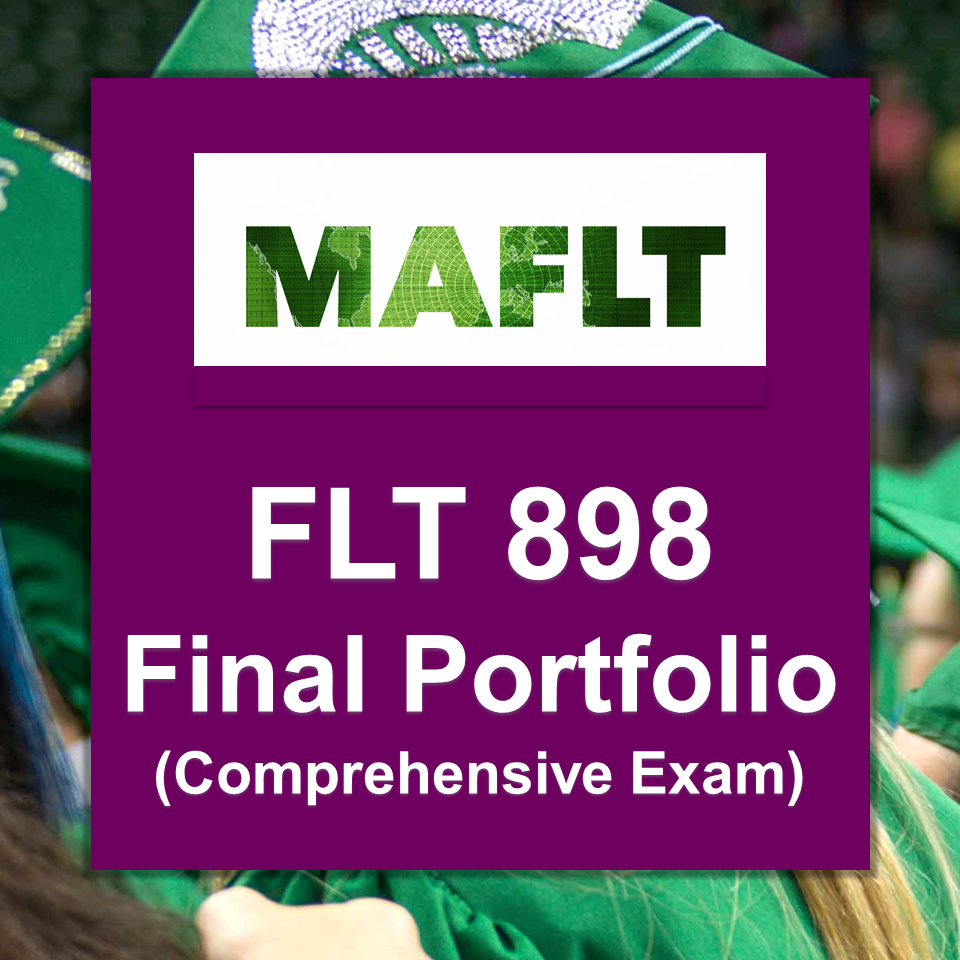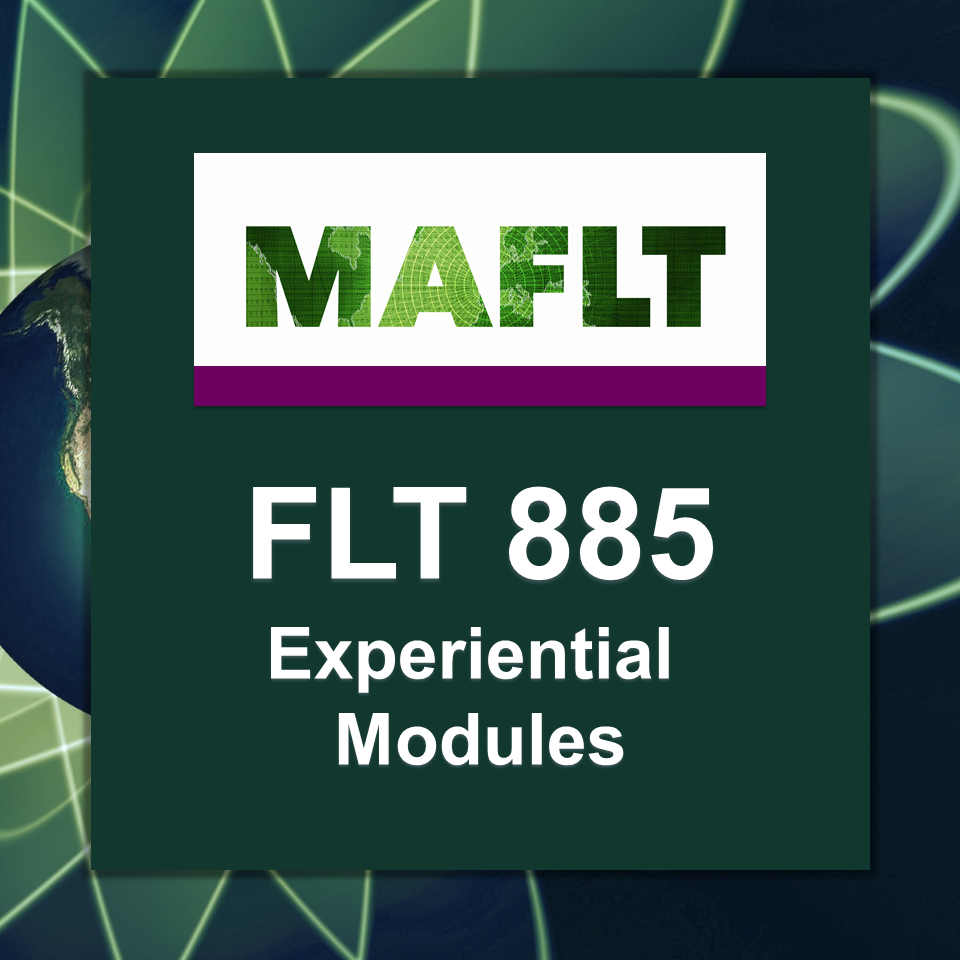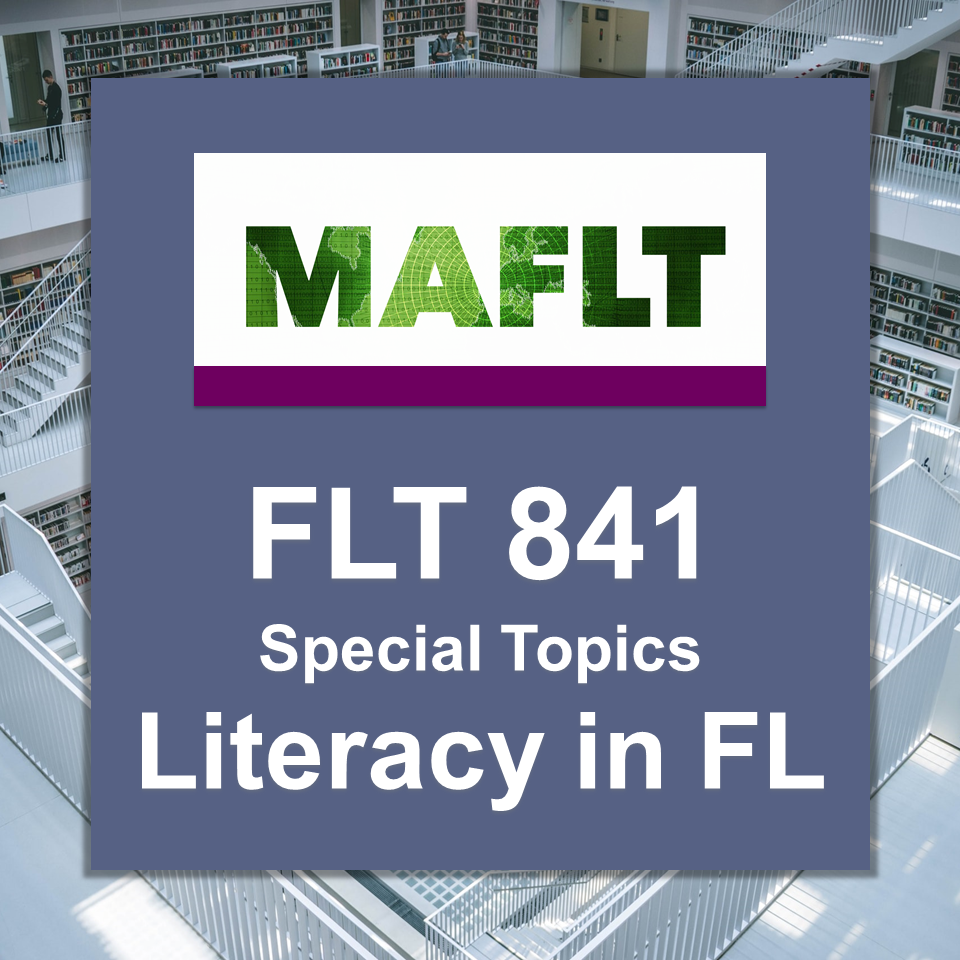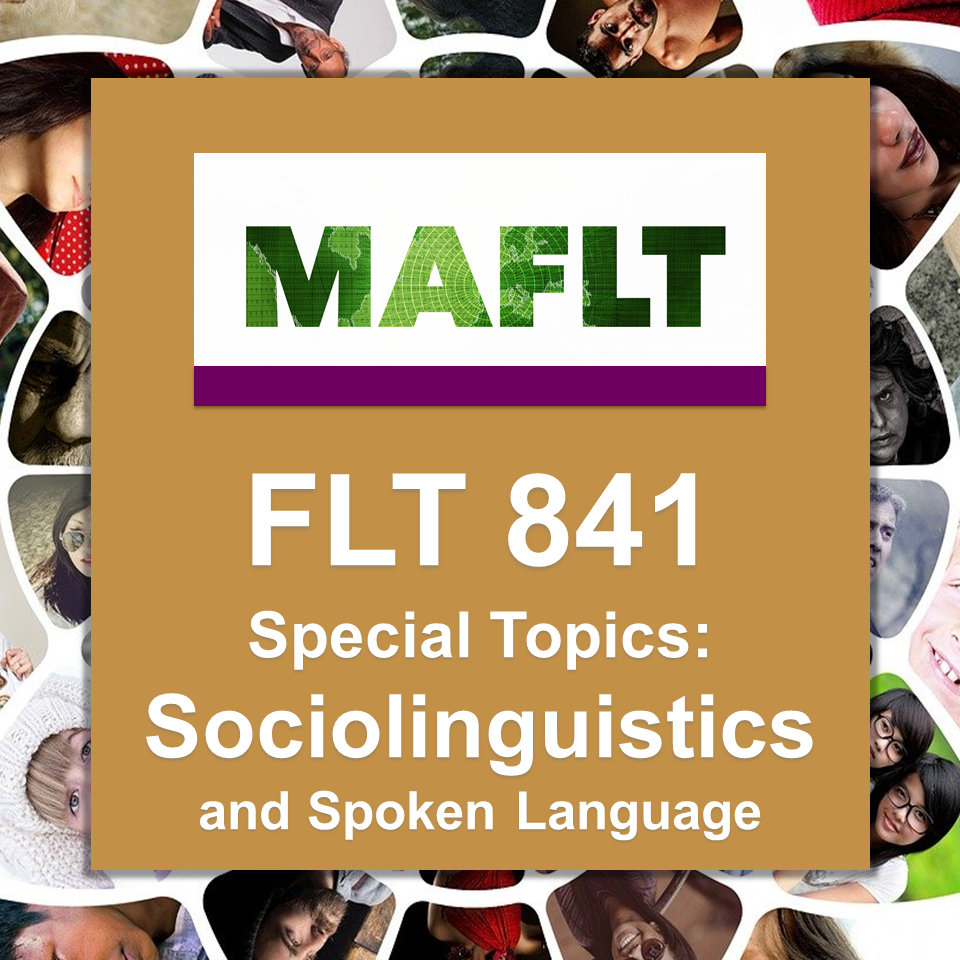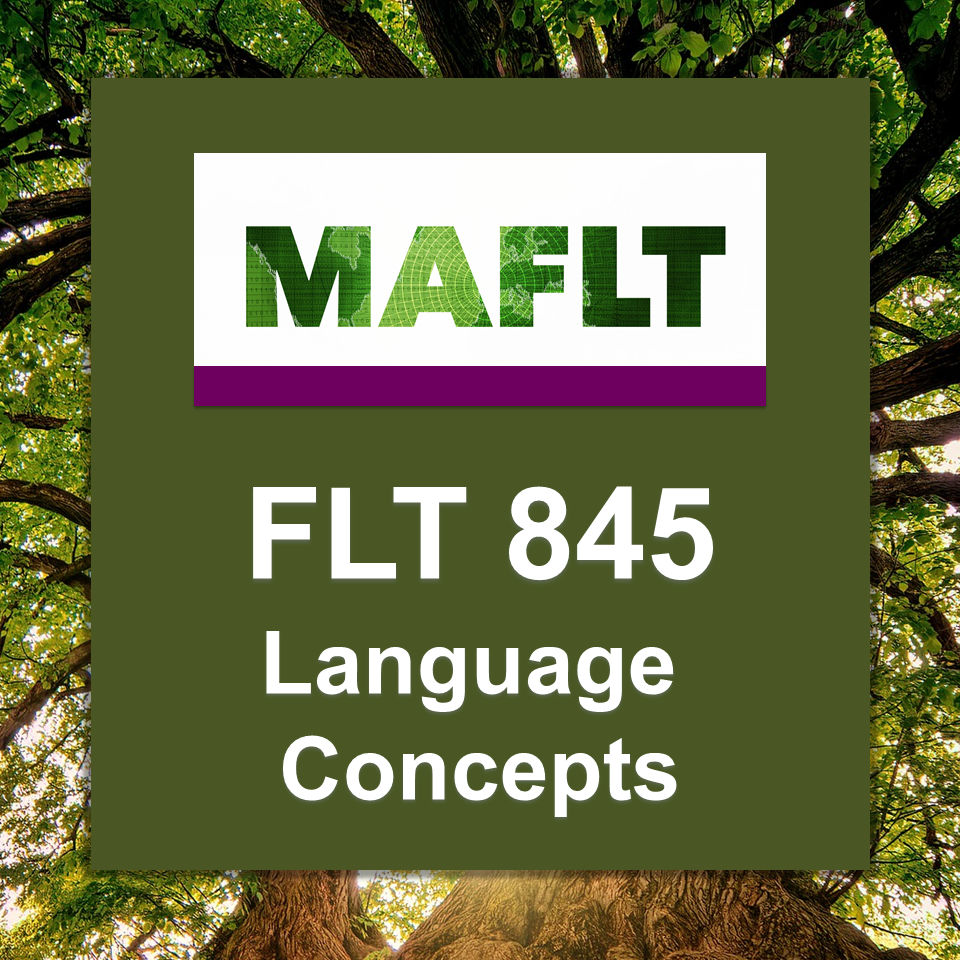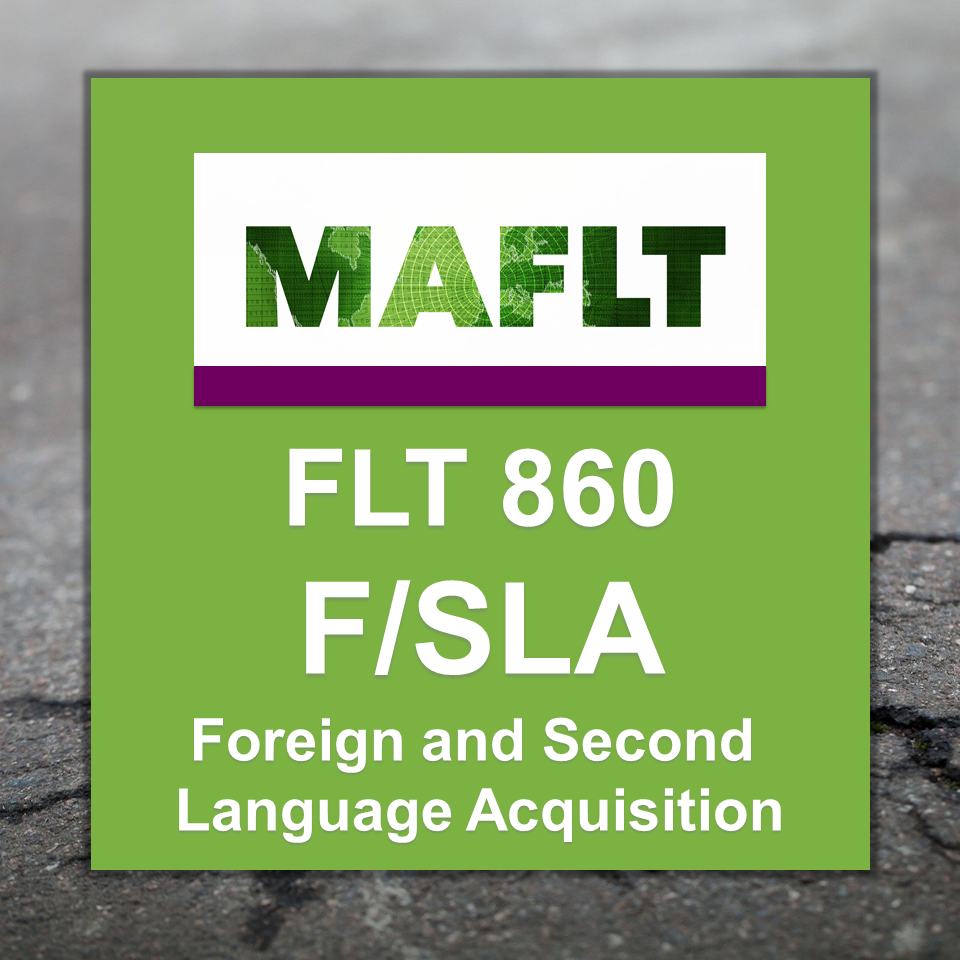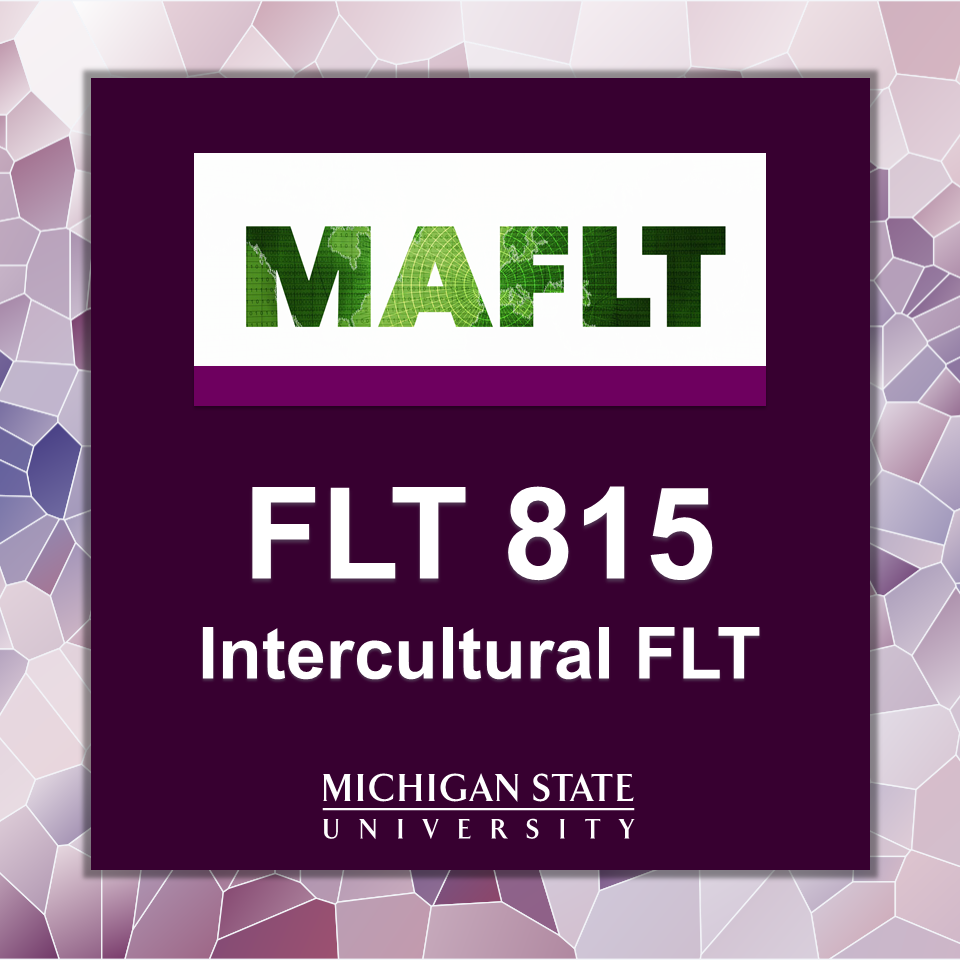Courses Designed
Since 2013, I have been primarily teaching online courses in the FLT curriculum. Because I came on board with the MAFLT when it was just beginning to take shape, I have taught nearly every course in the curriculum at least once. As Program Director since 2018, I also supervise all of the FLT instructors and the design and facilitation of all the courses.
In the case of each course below, I have designed (and re-designed) the content and online structure of the course based on my own training and experience, contemporary research and writing in the field, and years of reflection on working with the MAFLT’s student population of multilingual working professionals teaching in a wide range of contexts.
MAFLT Website > Course Descriptions
These days, I primarily teach:
- FLT 815 Culture (and Intercultural Competence) in Foreign Language Courses
- FLT 817 Foreign Language Program Development and Administration
- FLT 885 Experiential Modules
- FLT 898 Final Portfolio / Comprehensive Exam
I have also taught, and substantially contributed to the current design of most of the courses in the MAFLT curriculum and taught variations of these courses for other programs. Click on the icons or titles below to read descriptions and access related materials.
Reflective Teaching and Teacher Inquiry
This course focuses on reflective teaching and teacher inquiry. Whereas most courses focus on the how and the what of teaching a foreign language, this course focuses on the who – the teacher’s and the learner’s identity, beliefs, values, and roles. To that end, this course brings together, reflective practice, and teacher research. The course readings focus attention on many different aspects of language teaching, and they move from research on teachers to research by teachers. The theory component will cover research and scholarship that brings together identity and learning as well as motivation. The reflective component will provide guidance as teacher-learners build a practice of reflection that can lead to greater confidence, more effective teaching, and better change management. The research component is intended to introduce teacher-learners to theory forms of research that can be and frequently are implemented by teachers in their own classrooms. These approaches seek to decrease the distance between theory and practice, to empower teachers to become researchers in their own right, and to help teachers add to the field’s body of knowledge about teaching and learning in specific contexts and communities.


